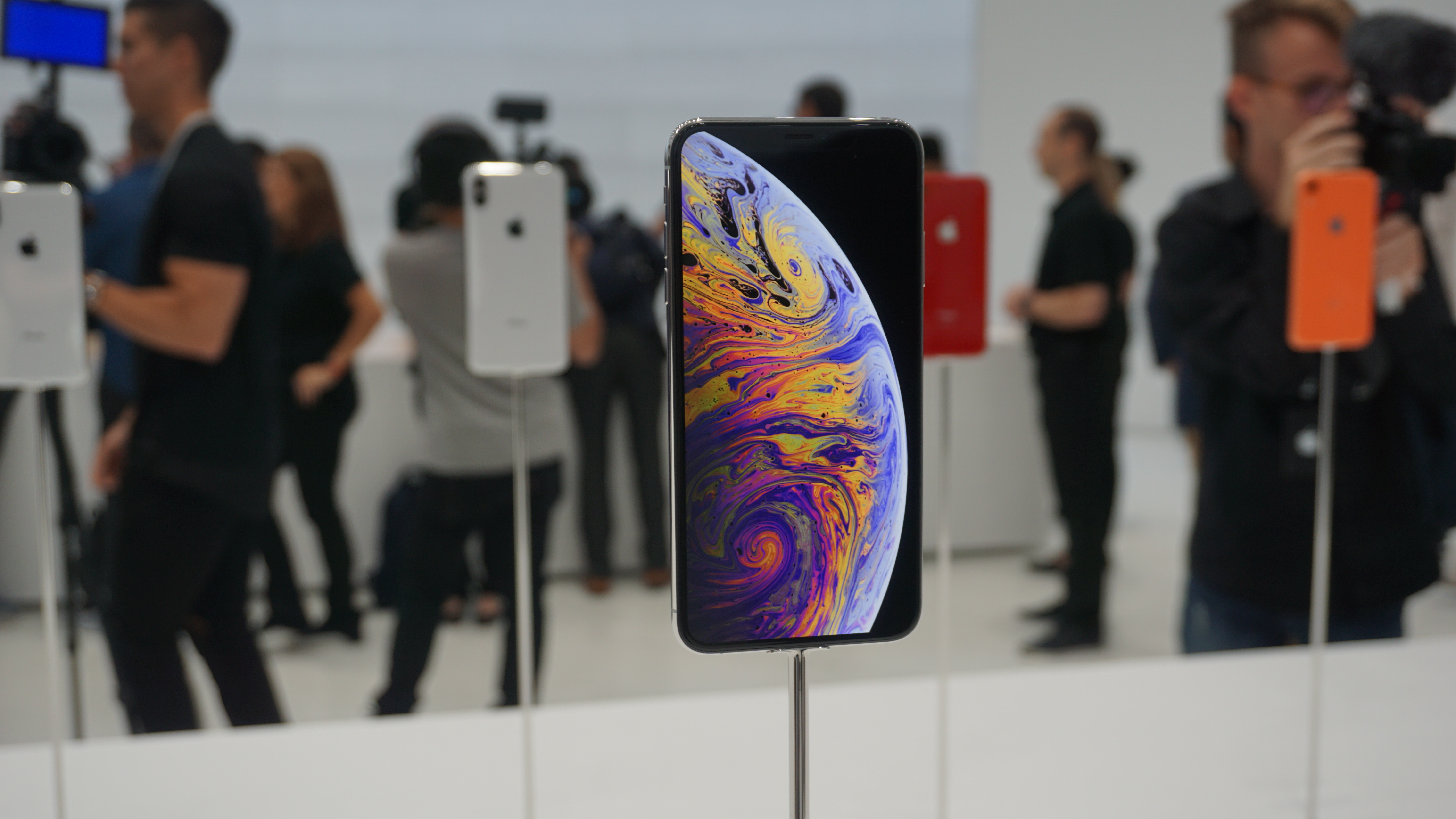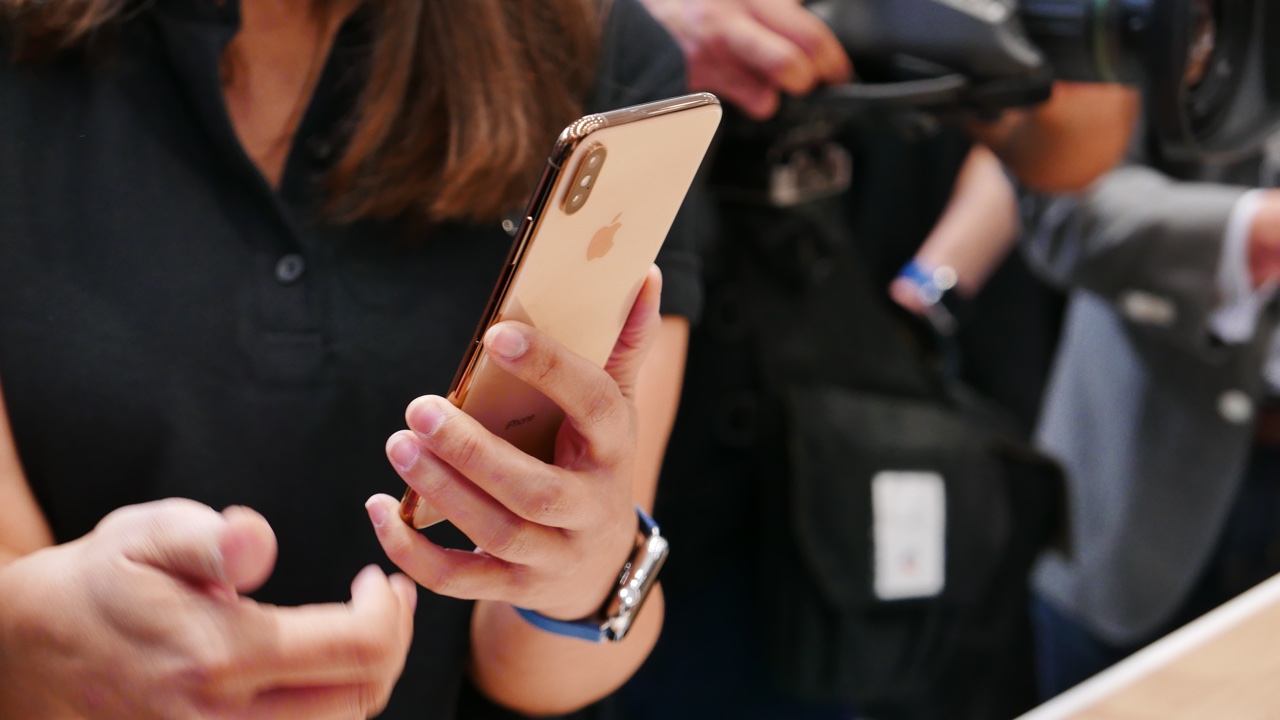Don’t write off the iPhone XS yet, it may be the fastest smartphone
Jumping to conclusions

Sign up for breaking news, reviews, opinion, top tech deals, and more.
You are now subscribed
Your newsletter sign-up was successful
Now that the iPhone XS and XS Max have been announced, we've heard from Apple fans and trolls alike, with the latter claiming that these new smartphones don’t have enough new technology to be worth the price tag.
This collection of mainstream critics, forum posters, and negative commenters have one thing right if you're unsure: you should wait for individual reviews. The key thing we're waiting for is to see how the new iPhone performs – in the real world.
It's easy to pick apart individual specs on paper. One thing in particular we always here from naysayers is that new iPhone specs never look that impressive on paper. It's true. When you compare at the Apple A11 to the Snapdragon 845 chipset in most new flagship Android phones, the Snapdragon looks stronger with its eight cores and these Android phones often have double the memory of the new iPhones – up to 8GB of instead 4GB of RAM.
But, in real world situations, last year's A11, found in the iPhone X, is more powerful, especially in single core applications. Not everyone seems to know this, based on the litany of YouTube comments we see.
Regardless of what the specs say, benchmarks and real-world performance usually place Android and iOS devices neck-and-neck. New iPhones can even be faster, thanks to the fact that their SOCs are manufactured specifically for Apple devices.
Except, this time around, the Apple A12 Bionic actually is impressive on paper, and once benchmarks are out, it could prove to be one of the most powerful phones on the market – outclassing the comparably-sized 6.4-inch Samsung Galaxy Note 9.

Unlimited power
Let’s take a step back and look at the raw specs behind the A12 Bionic, shall we?
Sign up for breaking news, reviews, opinion, top tech deals, and more.
Apple’s next SOC has two high performance cores and four power efficient cores, for a total of six. Apple claims that this configuration will lead to 15% higher speed and 40% better power efficiency, according to a report from Wccftech.
Things get juicier from there. The GPU is going to see massive improvements, thanks to the new 7nm manufacturing process. With four cores that support tessellation, multilayer rendering and lossless memory compression, we could see performance increases of up to 50%. None of this is new tech in the GPU world, but it’s still a massive improvement over last-gen and could lead to better gaming performance across the board.
The star of the A12 show is the Neural Engine. In AR and AI workloads, the new iPhones are going to shine. The neural processing unit (NPU) in the iPhone X’s A11 SOC had two cores, this is bumped up to eight in the A12. Apple claims that this will result in a peak performance of 5 trillion operations per second, compared to the iPhone X’s 600 billion. That’s a pretty massive boost.
These A12 specs could end up propelling the iPhone XS to the top of the smartphone performance hill, at least until Qualcomm puts out another flagship Snapdragon chip – nothing stays at the top for long.

Stacking coins
Look, we get it – with Apple’s closed ecosystem and high prices, it’s easy to jump to the conclusion that these phones are overpriced compared to Android phones. We’re not saying you should buy them – we just think it’s wise to wait to see how these devices actually perform before the pitchforks are taken out of storage.
If you look at the iPhone XS Max’s primary competition, the Samsung Galaxy Note 9 – the price difference isn’t really that drastic. It starts off at $999 (£899, AU$1,799) vs the iPhone XS Max at $1,099 (£1,099, AU$1,799). If you’re living in the US, that’s just a $100 difference – pretty minor at this price range.
The Note 9 does have more storage, that much we do know right out of the gate – it can even be expanded up to 1TB with a pricey $512 microSD card. But, not everyone even needs a ton of storage on their device, especially given the prevalence of cloud storage in 2018. Everything else, though, that’s up in the air right now.
If the iPhone XS Max launches and it’s significantly slower than the Samsung Galaxy Note 9, it’s going to be a problem. This writer will be jumping into the mob with the rest of you to shout at Apple while it counts its trillion dollars.
But, if the iPhone XS Max matches or even exceeds the Samsung Galaxy Note 9, it’s going to be compelling competition.

Staying objective
The way we see it playing out right now is that the Samsung Galaxy Note 9 is going to be the best phone for anyone who needs a ton of storage for local music, photos, videos and apps. If you’re just looking for a phone that’s going to be able to power through everything you can throw at it – the best move is to wait until full reviews come out. This way you’ll be able to see whether or not the iPhone XS Max’s performance will be worth the price of entry.
At the end of the day, we know that Apple and Android have their own devoted fan bases that can’t be swayed either way. We don’t like it, but we get it – there’s nothing wrong with having your preference. At the same time, though, it’s not worth it to jump to conclusions before we have all the facts. These new phones are launching on Friday, September 21 – maybe wait until then to make up your mind if you’re having doubts.
It’s entirely possible that the iPhone XS Max is an overpriced device that’s bound to fail – we don’t think that’s going to be true, but the possibility is definitely there. The iPhone X is still one of the fastest smartphones on the market, so if Apple’s performance claims are accurate, the iPhone XS Max may end up being the fastest smartphone out there. At least, until the next fastest phone comes out.

Jacqueline Thomas (Twitter) is TechRadar's former computing editor and components queen. She is fat, queer, and extremely online, and is currently the Hardware and Buying Guides Editor for IGN.